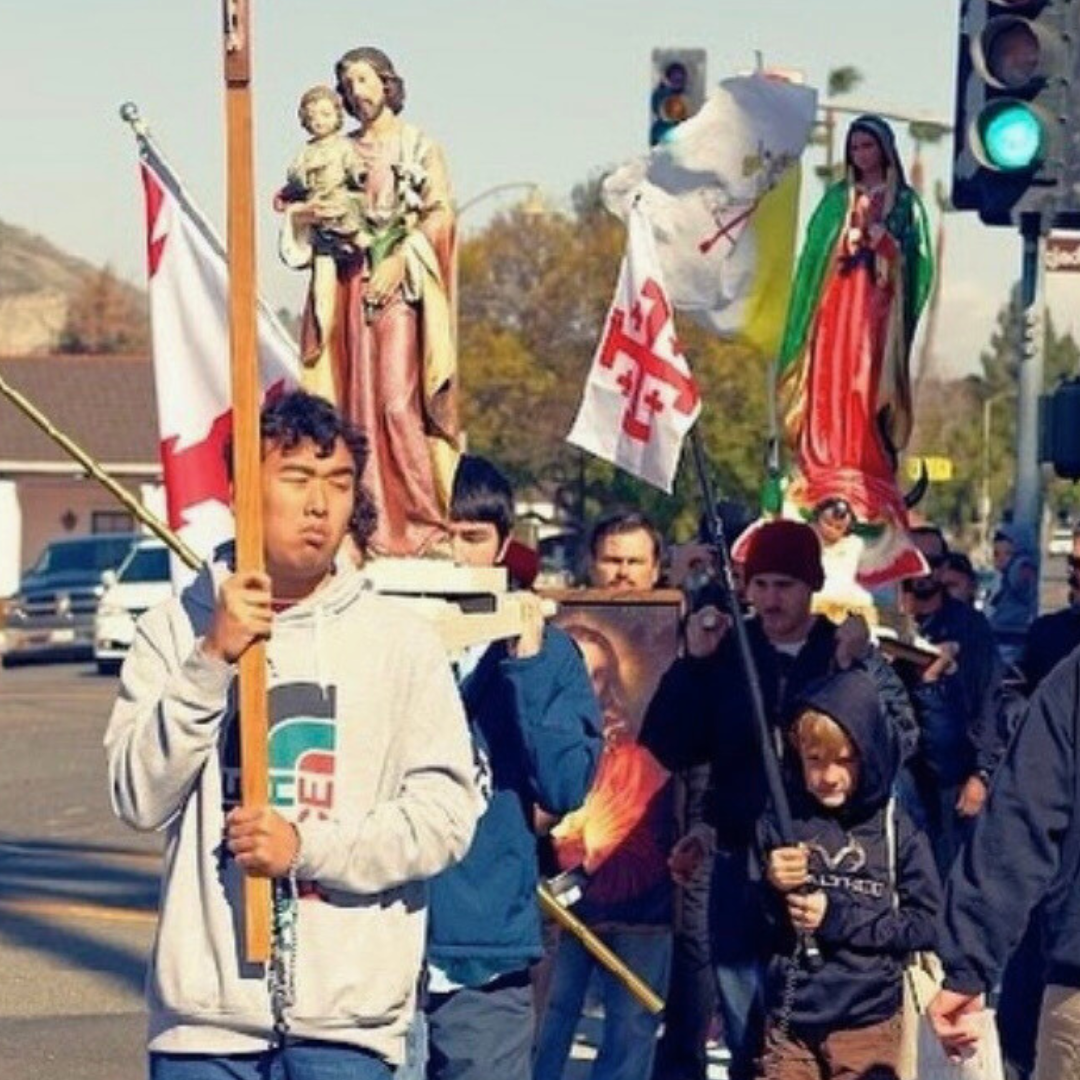Daniel Vu is one of three co-organizers of the Men's Rosary March in Southern California. He spoke with ChurchPOP to discuss how it began and its impact on Catholic men.
A friend from Vu’s parish first came up with the idea of a public profession of faith in 2019.
It began as a penance hike for men; together they hiked the most challenging terrain in San Diego while carrying a heavy pack and statues of their favorite saints while reciting the Holy Rosary and Divine Mercy Chaplet. Initially, 4-8 men participated.
In 2021, Vu and his friend, Sergio Flores, planned a men’s rosary march together given the aftermath of the 2020 election results.
"There seemed to be a hint of despair and cynicism," Vu stated.
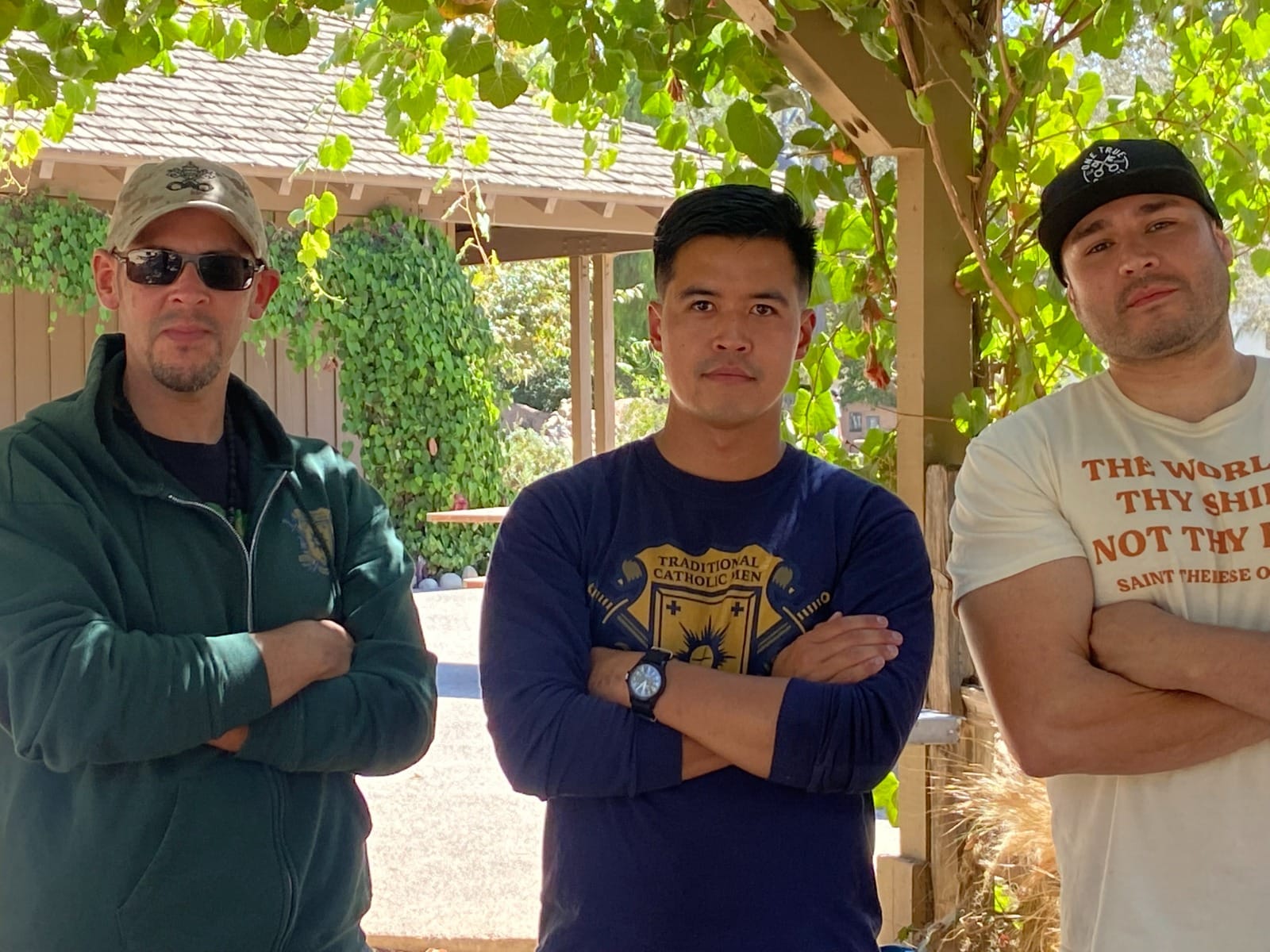
"This began during the COVID era in 2021 in an effort to alleviate what was perceived to be a spiritual ailment to not just the United States but the world in general during the lockdown periods, especially in the State of California,” Vu continued.
Rather than wait and plan, they decided to have the march almost immediately, this time with 21 participants. During this time, Saint Junipero Serra statues were being defaced and vandalized throughout the state.
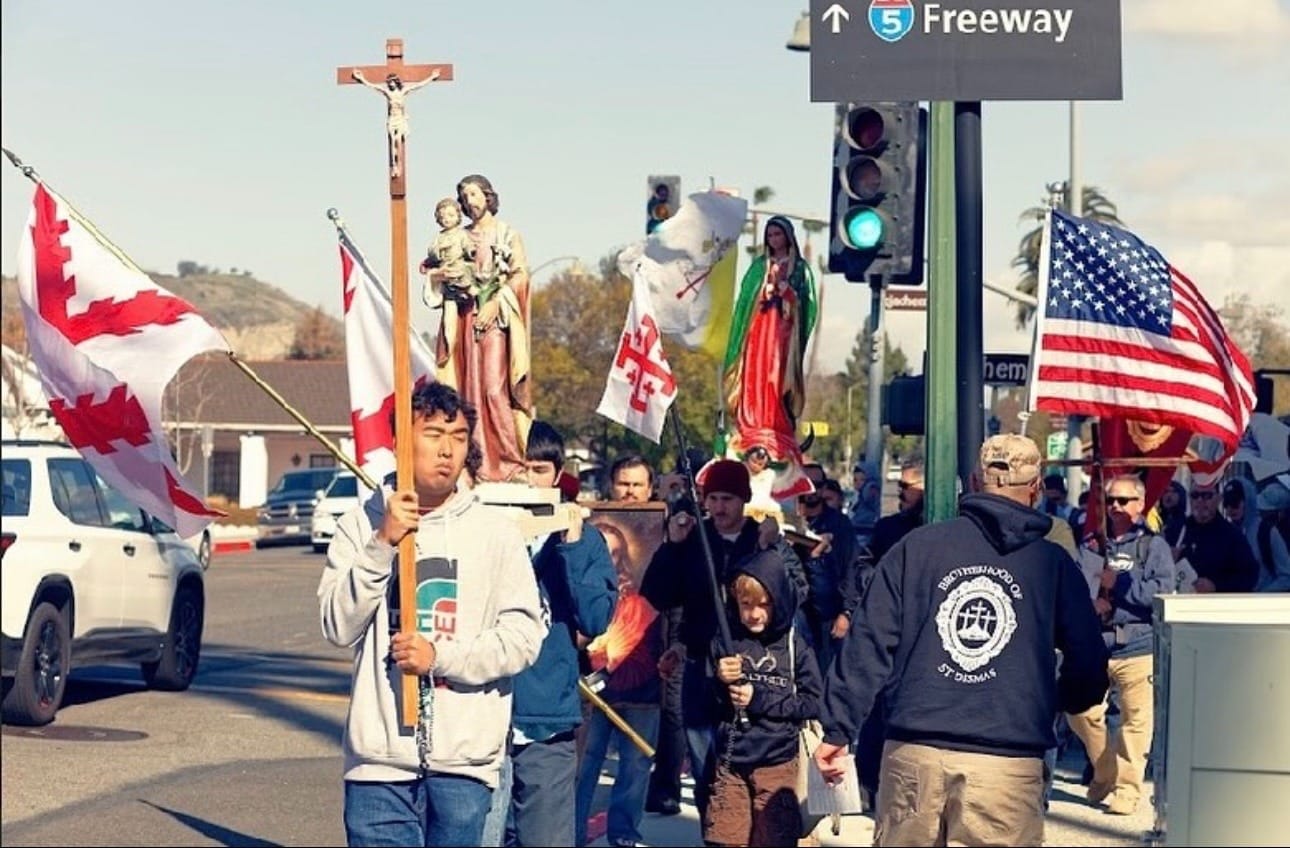
“We chose Mission San Juan Capistrano as the Rosary March location as it was a perfect halfway point between Los Angeles and San Diego, and to honor Saint Junipero Serra who was being targeted greatly by the woke agenda at the time,” Vu said.
Mission San Juan Capistrano was founded by Saint Junipero Serra on Nov. 1, 1776, as the seventh mission in California.
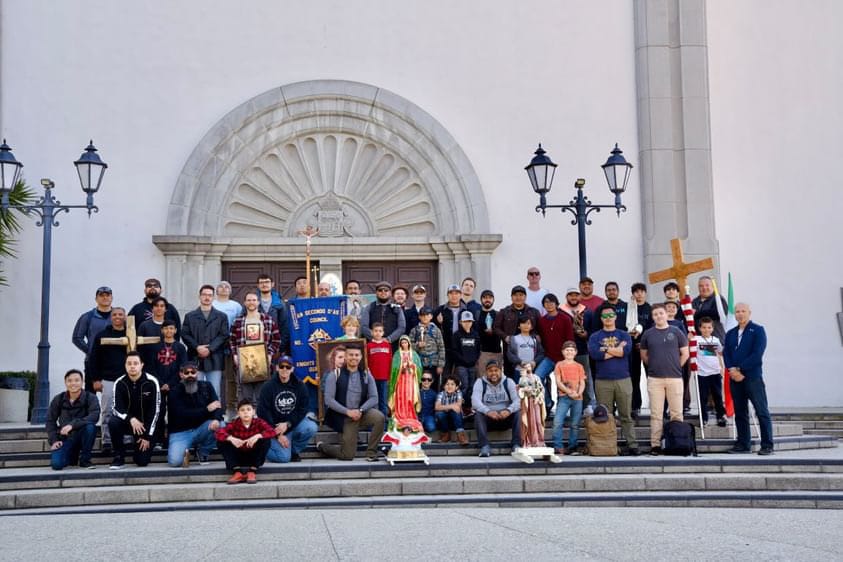
“In a way, we felt like we were standing up to protect his legacy," Vu continued. "When we were doing the march itself, it was surreal. At the time, California was still relatively locked down and the main streets barely had any traffic. When we were reciting the rosary, we could hear the 'Hail Mary' and 'Glory Be’s' echoing. There were a lot of people who were very moved by it.”
After that march in January, Vu shared that they were surprised at the impact it made, despite having just 21 participants.
“Let’s give it another shot and go from there,” he stated.
On the first Saturday of March 2021, they conducted another rosary march. This time, about 50 men participated, and because they were eager for the next event, Vu and his two friends dedicated themselves to organizing it quarterly. In June of the same year, around 90 men participated.
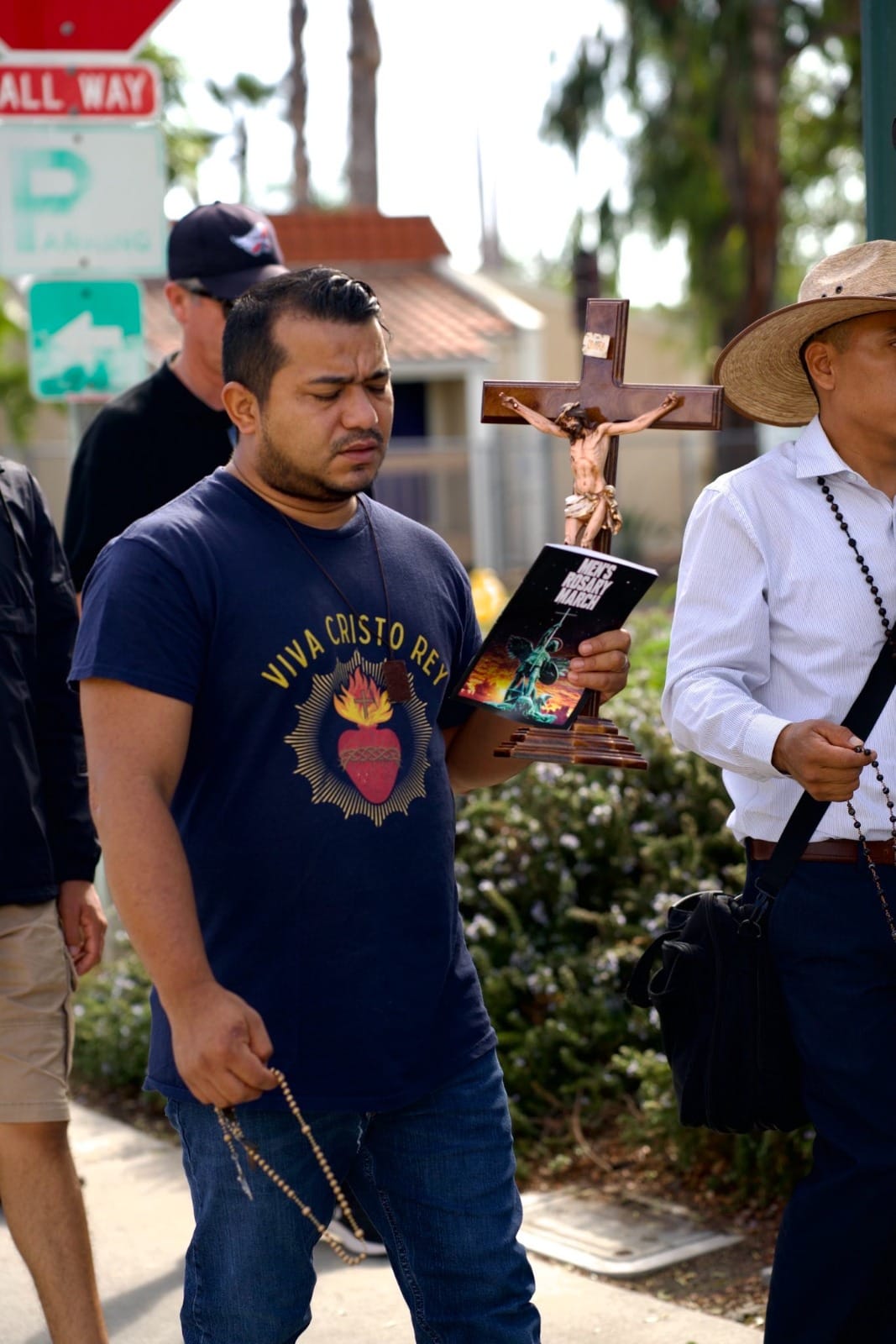
“Since that first march in 2021, we have continued to host multiple marches throughout the year at Mission San Juan Capistrano," Vu stated. "In an unintentional way, it's influenced many other Catholic Men around the country to hold similar Men's Rosary Marches and rallies."
Vu explained how powerful these rosary marches have been for men in his community.
“This has been extremely edifying because Catholic men overall are hungry to do more. Since 2020, we’ve witnessed the lack of a masculine response. The purpose of the Men’s Rosary March is essentially to get men to be spiritually confident."
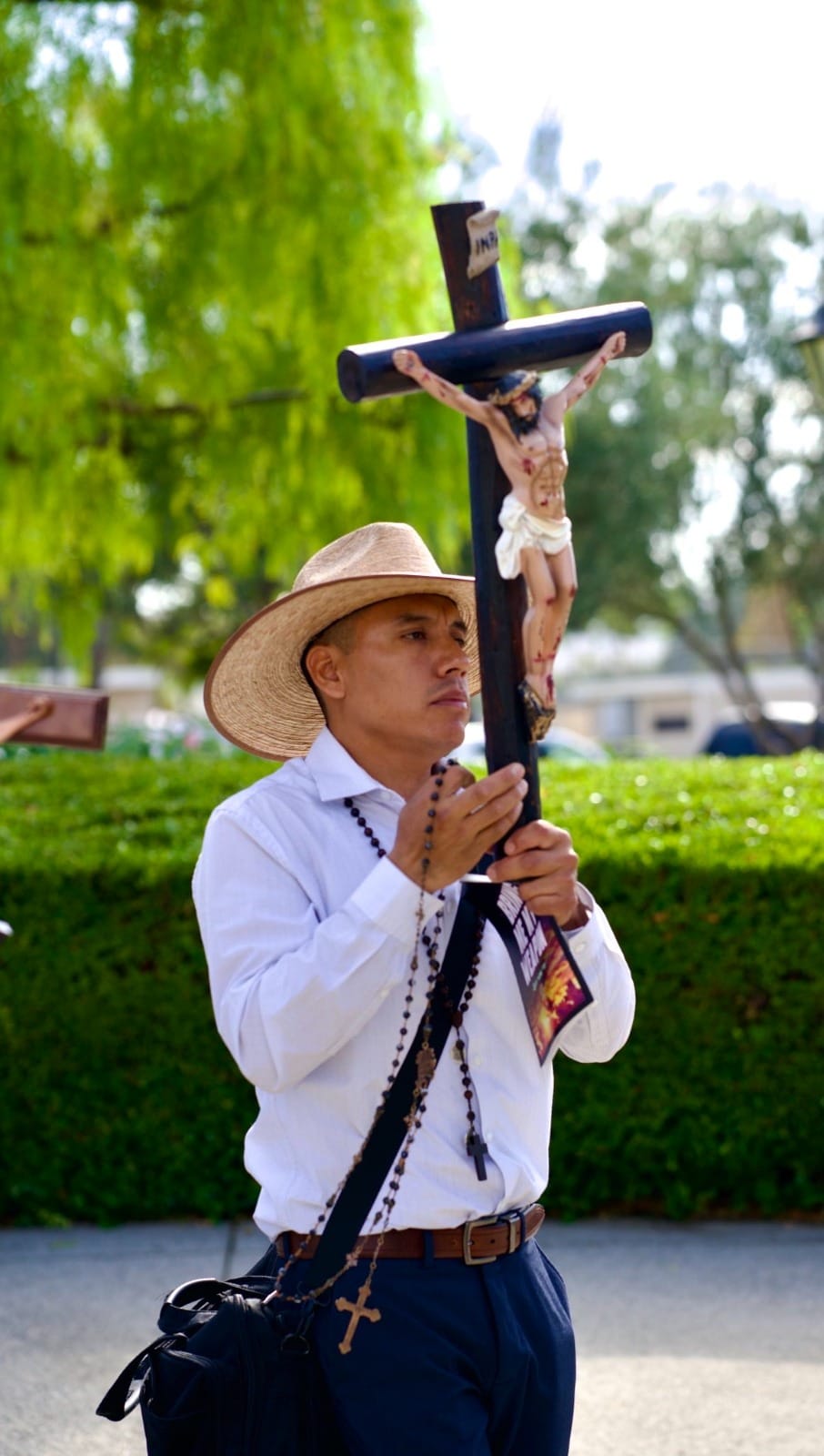
"If you become confident in professing your faith in public unashamed, we believe it plants the seed so that a man becomes more confident in becoming a protector, defender, and guardian in his personal life and his calling, whether to be one of the clergy or one of a married man.
"When you have men coming out and professing their faith in public, it encourages them to also plant a seed, in which he will ask himself, 'What more can I do?'
“We’ve noticed that 99 percent of the time, the response from those who witness us marching has been positive. To have them witness men professing their faith in a world that is hostile toward the Catholic Church, especially in the state of California, is something they don't see every day. It’s a glint of hope that the faith is very much alive, despite everything that is being thrown against it.”
The third and final Men’s Rosary March of this year will take place on Oct. 5, 2024, in the perimeter of Mission San Juan Capistrano.
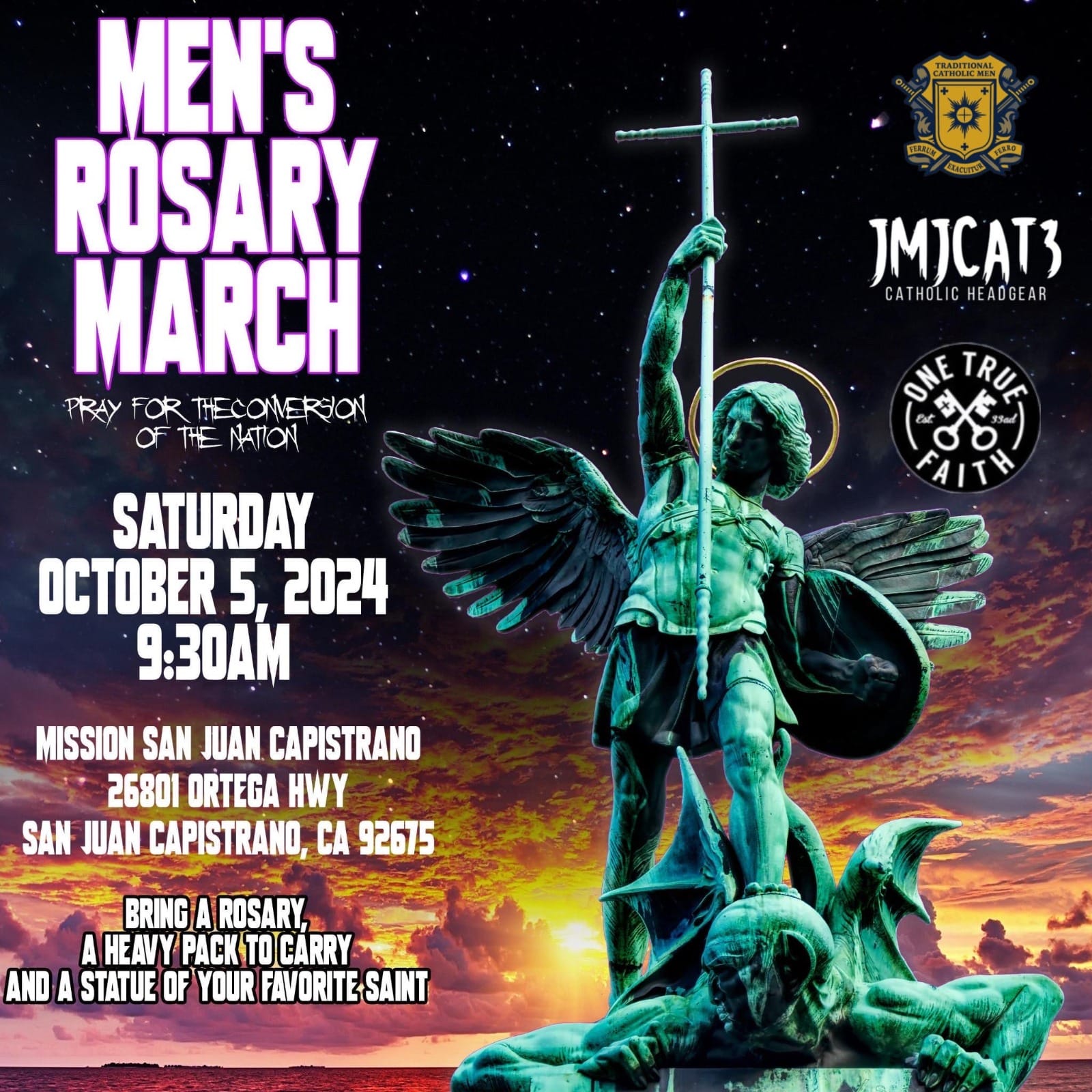
“This is your chance to profess your faith in the world," Vu stated. "It’s not only your duty, but your right as a Catholic man, protector, defender, and guardian of the Catholic church, her teachings, and her traditions."
Vu added that his, Flores', and Ortiz's family roots contributed to their desire to hold the marches.
“Philip Ortiz and Sergio Flores’s family lineage can be traced back to the Cristeros, while my family lineage is traced back to the Vietnamese Martyrs," Vu said. "They all greatly influence us because we want to uphold their legacy through the men’s rosary marches.”


